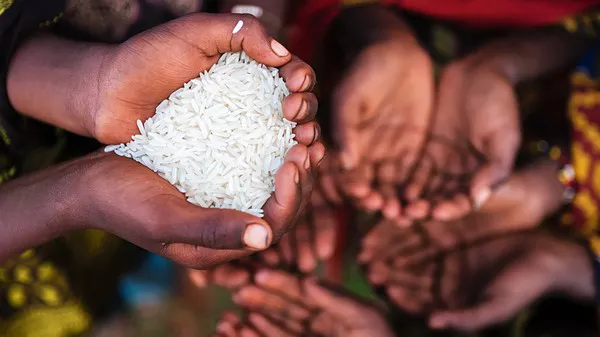In a move to address pressing issues affecting Nigeria’s agricultural sector, the Nigerian government has reached out to the United States for support. Vice President Kashim Shettima initiated discussions during a meeting with the U.S. Special Envoy for Global Food Security, Cary Fowler, as part of his diplomatic engagements in the United States.
“We seek the support of the United States Government, be it technical or otherwise, towards addressing challenges in our agricultural sector,” Shettima stated. He emphasized the importance of mechanization, high-quality seeds, fertilization, improved agricultural practices, and smart agriculture in boosting productivity. “Our entire focus is on increasing yield and improving productivity. It goes beyond the mere acreage used for production,” the Vice President highlighted.
Shettima assured the U.S. Special Envoy for Global Food Security of the government’s readiness to collaborate with relevant stakeholders, not only to enhance agricultural productivity in Nigeria but also across Africa. He expressed the commitment to sustaining existing relationships with partners in the agricultural sector for continuous growth and development.
In response to Nigeria’s request, Fowler revealed that the U.S. Government, in collaboration with other key stakeholders, has launched an innovative agricultural program focused on Africa. The program, known as the ‘Vision for Adapted Crops and Soil,’ is a partnership involving the U.S., the African Union (AU), and the Food and Agriculture Organization (FAO). It aims to assist African nations, from the national level down to individual farmers, in effective soil management, ensuring sustainability and productivity in soil cultivation.
Fowler also expressed concerns about the impact of climate change on Africa’s crops and emphasized the need to address the challenges faced by African agriculture. He noted that the program would focus on indigenous African crops that have long suffered from underinvestment. To support this initiative, the U.S. Government has allocated $100 million to the program, and a multi-donor trust fund has been established at the International Fund for Agricultural Development (IFAD).
However, Fowler stressed the importance of collaborative efforts with countries like Nigeria, emphasizing the need for political support to ensure the sustainability and institutionalization of these agricultural efforts, ultimately putting African nations in the lead.

